 |
 |
Follow NECE on twitter and linkedIn. The NECE Conference hashtag is #NECE2015.
|
|||||
| NECE NEWS | ||||||
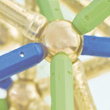 |
NECE Conference 2015: ‘Us’ and ‘Them’: Citizenship Education in an Interdependent World 22-24 October 2015, Thessaloniki, Greece |
|||||
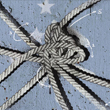 |
Pre-conference meeting of NECE Focus Groups
Before the conference began, the NECE Focus Groups “Exchange between North Africa and Europe” and “Hard to Reach Learners” met up in Thessaloniki to prepare input, discuss specific relevant aspects and plan the next steps the groups will take in their work. 33 members of “Hard to reach learners” from a total of 12 countries met on October 20-21 at the Goethe-Institut Thessaloniki to talk about what the group has achieved so far and – by evaluating opportunities and chances for future work – ponder where it is going. In parallel, 30 members and guests of “Exchange between Europe and North Africa” also gathered at the Goethe-Institut Thessaloniki from October 19-21 to discuss the topics of “othering” and “radicalisation of youth” in-depth, as well as challenges the focus group will face in the future. For more information, click here.Further information on the focus groups and their results will also be available soon on this website.
|
|||||
| EURO-MED COOPERATIONS | ||||||
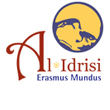 |
Erasmus Mundus - Al Idrisi II: A scholarship scheme for exchange and cooperation between Europe and North Africa
Al Idrisi II is an Erasmus Mundus Project aimed at Egypt, Libya, Morocco and Tunisia. The goal of the project is to establish an active, institution-based mobility network among 19 North African and EU partner universities, six associate universities supported by three associate institutions, and Ministries of Higher Education in the region. The project will give undergraduates, master and doctoral students, post-doctoral fellows and academic/administrative staff the opportunity to gain valuable experience, knowledge and contacts abroad. Al Idrisi II focuses strongly on regional needs in North Africa, along with the development of specific and relevant areas that have been defined by the partners. |
|||||
| GOOD PRACTICE: IDEAS & EXAMPLES | ||||||
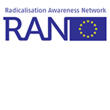 |
Radicalisation Awareness Network (RAN)
To fight terrorism and violent extremism, you have to work with a broad range of partners – experts who can lead you to a better understanding of behaviours and tactics, and help mitigate or prevent these activities. There are many practitioners, researchers and NGOs across Europe that are very knowledgeable about how to deal with radicalisation on the ground.
|
|||||
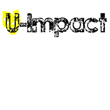 |
ACCES – Active Citizens for Common European Solutions
As the refugee crisis gathers even more momentum, the cross-border U-Impact project has launched a citizen initiative to address the freedom of movement and refugee dilemmas facing Europe’s citizens and its leaders. The focus is on fostering active involvement in civil society during the ongoing political debates about what to do with refugees, expressing European solidarity and ensuring basic freedom of movement. The goal of the initiative is to get citizens from the EU, candidate countries and the European Neighbourhood actively involved in these issues.
|
|||||
| POLITICS & POLICIES & CITIZENSHIP EDUCATION | ||||||
| Europe's media at a glance – The German Federal Agency for Civic Education publishes a trilingual media database / New service added to the European press review eurotopics.net
Diversity and uniformity define Europe's headlines as much as they define Europe itself. A new media index compiled by Germany’s Federal Agency for Civic Education (Bundeszentrale für politische Bildung/bpb) within the framework of its European press review provides background information on print and online media. For the European press review (www.eurotopics.net), 26 correspondents follow the most important ongoing debates in the EU member states, Switzerland and Turkey. In German, English and French the new media database provides background information on around 500 print and online media, including their political orientation, data about editors or publishers, circulation, and payment models for websites. Addresses and Twitter names for individual media outlets are also listed. In addition, readers can peruse a brief description of the history and main features of the newspapers, magazines and blogs that are featured in the index. |
||||||
| Tackling the real reasons causing people to flee Syria
The German Development Institute has published an interesting column on how some people are misusing the refugee crisis to cover inaction and ignorance with regard to the war in Syria. According to the article, it all comes down to two major misconceptions. |
||||||
| EPALE – Electronic Platform for Adult Learning in Europe
EPALE is a multilingual open membership community designed to be of interest to teachers, trainers, researchers, academics, policymakers and other professionals who play a role in adult learning across Europe. The platform is set up to foster the sharing of content related to adult learning, including news, blog posts, resources, events and courses. Funded by the European Commission, EPALE is the latest development in an ongoing commitment to improve the quality of adult learning in Europe. |
||||||
| Public Consultation on 2016 EU Citizenship Report
Vĕra Jourová, the EU Commissioner for Justice, Consumers and Gender Equality, opened the Conference on EU Citizenship and Justice in Luxembourg with a call for citizens and stakeholders to participate in online consultations that were launched in September. The aim of these deliberations on the EU is to collect experiences and ideas from citizens on how to make it easier to exercise their rights. A compilation of the opinions and ideas will provide the basis for the bloc’s 2016 Citizenship Report. |
||||||
| CALLS | ||||||
| Call for Submissions – Special Themed Issue of “International Journal for 21st Century Education” Application Deadline: 30 November 2015 In today’s conflicted world, people need to develop a sense of responsibility at both local and global levels, becoming active citizens of their countries, continents and the planet as a whole. Many unresolved questions involving the theory and practice of education remain. Going to press in December 2015, this special issue on ‘European Citizenship and Literacy’ is seeking contributions related to European Citizenship and Literacy. The International Journal for 21st Century Education is a biannual publication dedicated to original studies on Education, Education Innovation, Research in Education, Second Languages, Multilingualism, Interculturalism, Multiculturalism and other related fields. |
||||||
| Call for Applications – Young Europeans Award 2016 Application Deadline: 1 March 2016 The Young Europeans Award is a tri-national competition for young people from Germany, France and Poland. Classes and out-of-school groups are eligible to participate in the competition by getting involved in a joint project on the topic “How Far Does Europe Reach?”. |
||||||
| EVENTS | ||||||
| Mapping Memories of Post-1989 Europe
Vienna, Austria, 29 November - 3 December 2015 |
||||||
| 9th Annual International Conference on Global Studies: Business, Economic, Social and Cultural Aspects
Athens, Greece, 17-20 December 2015 |
||||||
| EUROCLIO 2016 annual conference
Belfast, Northern Ireland, 19-25 March 2016 |
||||||
| 24th World Congress of Political Science
Istanbul, Turkey, 23-28 July 2016 |
||||||
|
You can find more current publications on citizenship education in Europe at the NECE website. |
||||||